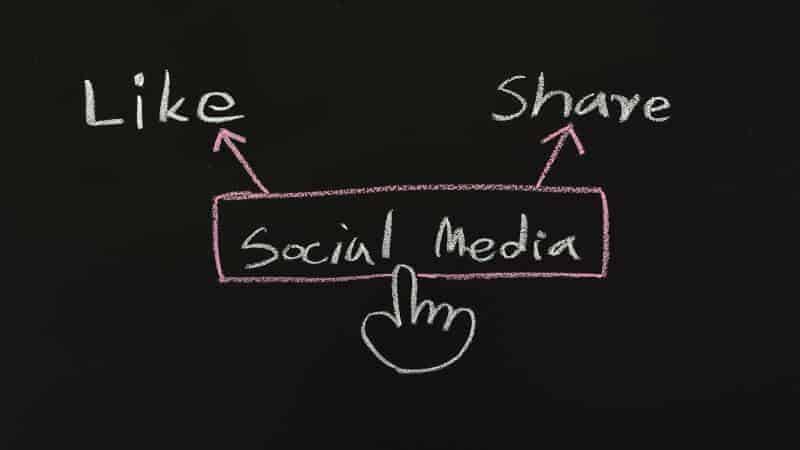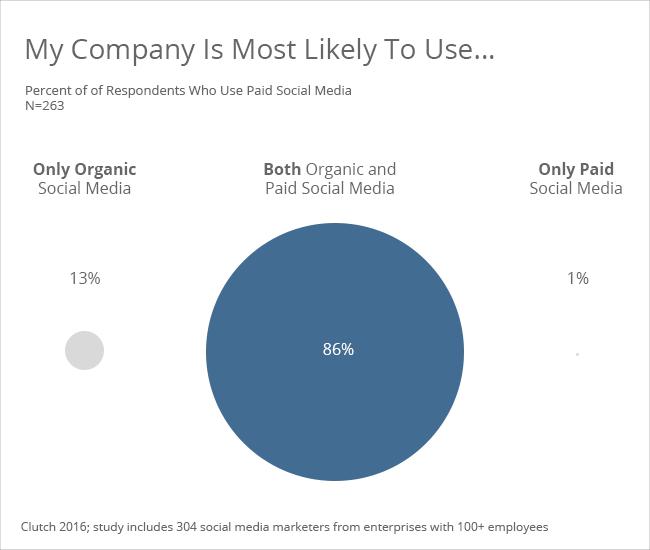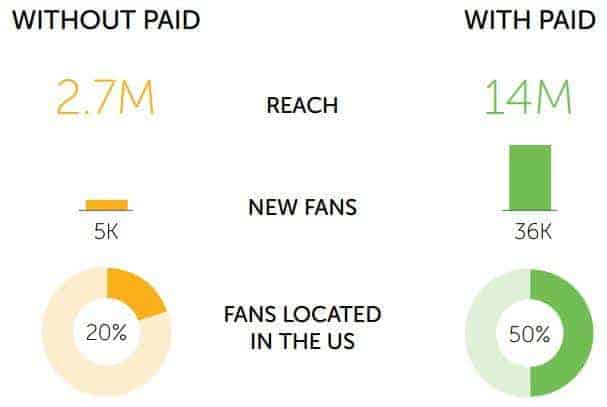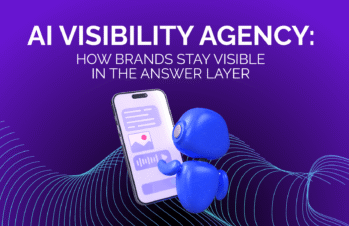Quick, answer these questions.
Which is better, a hammer or a screwdriver?
Is a saucepan better than a skillet?
Should you use paid or organic social media marketing?
The answer to all three questions is the same in every case: It depends. The tool you use depends on the task at hand, the results you want, and how you want to achieve those results.

If you have an online business presence (and if you don’t we need to talk), social media marketing is mandatory. If you don’t have some kind of social media presence, you could be on your way to irrelevancy.
A major part of social media marketing is understanding the two different types: paid vs. organic.
Really, though, putting it this way sets up a false dichotomy that lands you in an either-or fallacy. Like most things in life, it’s not “either-or,” but “both-and” – depending on what and how you want to invest in your marketing efforts. Let’s take a look, then.
Paid Social Media Marketing
Here’s the short definition. With paid social, you invest money in return for a better chance of getting fast results.
The most important advantage of paid is that you can define and target a specific audience with, say, carefully crafted ads designed to engage those people who may already have an interest in your product or service.
Since these ads can be optimized for a specific target audience, zeroing in on those people who meet your specific demographic profile. And this means they are likely to click on your ad or visit your website.
The paid route will almost certainly get you faster and better results than simply relying on organic.
In fact, here’s a very important note:
These days, with all the chatter and noise on every social media channel, it’s virtually impossible to get great results solely from organic social. If you want to get more eyes on your posts and grow your business, you simply have to start investing in paid social.
Once your ad goes live on the various social media channels, you’ll start getting clicks and visitors to your website. Paid social marketing also usually has built-in analytics – like Facebook Insights, for example, which gives you analytics information on your Facebook ads – which makes it ideal for testing and launching new products or services.
But as with any paid advertising, there is a small risk involved. There’s no absolute guarantee that you’ll see positive ROI. Without research and careful planning, paid social campaigns can plateau.
That’s why developing a strong social strategy is key to reaping the potential benefits of paid social.
Organic Social Media Marketing
Again, here’s the short definition. With organic social, you invest time and effort for slower, but longer-lasting, results. It’s not as tightly focused as paid, but it can keep on working for you over the long haul. It’s also just as vital to your business as paid social.
Primarily, organic social media marketing involves using the free tools available through the various social media platforms to build a social community with which you can regularly interact. The goal in all that is to get eyes on your content, which in turn leads to sign-ups, leads, new customers/clients, and sales.
Although organic is time- and labor-intensive, it does get results. After all, an ad may get a potential customer to Like your Facebook page, but if there’s not much there for them to see once they click on to it, you’ve probably lost that customer for good.
In addition, organic social marketing has staying power far beyond that of paid. Ads are run for only a set time period, but those links in your tweets to that high-quality article on your website keep getting shared. They can keep rattling around the web indefinitely, earning you leads today, tomorrow, and five years from now.
Like paid social, however, getting the best results from organic social requires a clear, laid-out strategy. You’ll need to use multiple social media channels where you deploy quality, shareble, strategically planned content. The aim is to keep potential customers and/or clients engaged.
A Combination of Paid and Organic
So which is best, paid or social? The answer is neither – instead, a strategic combination of both is best. And businesses are catching on.

Source: Clutch, Social Media Marketing Survey 2016: Paid Versus Organic Social Media
For proof that a combined model is best, take a read through this case study as reported by Contently.
Castrol Moto, the motorcycle division of Castrol, conducted a one-year experiment using both organic and paid social media campaigns on Facebook. The goal was to boost North American engagement with their brand.
For the first six months of this experiment, Castrol Moto used only organic. Because of their quality content, they garnered 5,000 new fans in that short six-month period – which is really pretty impressive for a brand-spanking-new Facebook page. And they had engagement, too: 26,000 social interactions.
But here’s the catch. Although Castrol Moto was targeting North America only, Facebook has global reach – and organic social-marketing results can’t be controlled according to the target region. It turned out, then, that 80% of the 5,000 fans were of little to no value for this region-specific organic social campaign.
So for the second six months of this year-long experiment, the company shifted its social focus to paid marketing while still keeping up content distribution through organic marketing. The emphasis was on clearly targeted ads – by region, interests, and age – and heavily promoted and similarly targeted posts. And the results were little short of astounding.
With this six-month-long social media marketing campaign combining both organic and paid tactics, Castrol Moto added over 30,000 new fans. And a full 50% of those 30,000-some fans were located in the target region. Just take a look at the graphic below.

Source: Contently
Whether you decide to use paid or organic or a combination of the two, social media marketing is something you can’t afford to neglect. Ready for more essential social media reading? Check out our post “12 Must-Have Social Media Skills for Every Digital Marketer.”



